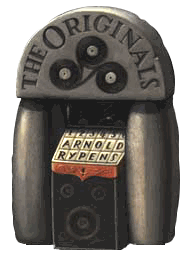CARRY ME BACK TO TENNESSEE
Created on 06/09/2005Latest update on 16/11/2023
Artist: Carter's Zouave Troupe
Author: Septimus Winner
Year: 1880s
Female brass band conducted by James Heneage Carter. Author Septimus Winner also wrote Listen To The Mocking Bird and secured his copyright in 1865. This Civil War-era song about a Tennessee runaway slave considering the high price of his freedom (the loss of his one true love), was first published in the Scottish Students' Songbook (1884), although melody and theme were inspired by a song with a 1853 copyright: Ella Ree or Ellie Rhee. Hear the Ellie Rhee/Carry Me Back To Tennessee melody at http://www.civilwarpoetry.org/union/songs/ellie.html.
Covers:
- 1889:
Jacobus Toerien [as Sarie Maré; see footnote]
- 1899:
Boer War soldiers [during Boer War (1899-1902) as Sarie Marais on both sides of the frontline]
- 1900s:
British Royal Marines [official regiment march; their training ship was also named Sarie Marais]
- 1910:
Carroll C. Clark [black bariton for Columbia with Vess Ossman on banjo; oldest recording as Carry Me Back To Tennessee]
- 1930s:
Gracie Fields [during first intercontinental radio transmission between South Africa, Great Britain and the USA]
- 1931:
Chris A. Blignaut & The Melodians [oldest SA recording]
- 1933:
August de Laat & De Ramblers [as Sarie Marijs]
- 1934:
Bob Scholte [as Sarie Maré]
- 1935:
Albert de Booy [as Sarie Marijs]
- 1948:
Anne Shelton [with Stanley Black's orchestra as My Beautiful Sarie Marais]
- 1949:
Eddy Christiani [as O Mijn Sarie Mijn Sarie Marijs]
- 1950s:
Chants de la Légion Etrangère [as Sarie Mares]
- 1954:
Kilima Hawaiians [as Sarie Mareis]
- 1958:
Bobbejaan Schoepen [as Sarie Marais]
- 1962:
Willie & His Giants [as Sarie Marijs; uptempo guitar instrumental]
- 1963:
Jim Reeves [as Sarie Marais; in African]
- 1977:
Thembi [as Take Be Back To The Old Transvaal; top 3 NL]
- 1999:
Helmut Lotti [idem]
Jacobus P. Toerien was one of the first poets to publish in Afrikaans (under his alias Jepete - his initials). Love poem for his wife Susara Margaretha (Sarie) Maré, born in 1869 in Eendraght (Suikerbosrand) in the Transvaal province, where she grew up near the Mooirivier (like in the song's lyrics). She was the daughter of Jacob Maré, member of the Transvaal executive. In capital Pretoria a street is named after him. At the age of sixteen she met up with Jacobus Toerien, a journalist for newspaper Di Patriot Van Die Paarl, who came to interview her father. They got married and had 16 children (8 surviving). From Americans working in the Transvaal mines, he knew the song Carry Me Back To Tennessee, written by Septimus Winner (see top). With this melody Toerien immortalized the name of his wife. Sarie Maré was deeply religious, humble and not at all of the self-glorificating kind. She always denied being the subject of this popular song and the more it became popular, the more she was embarrassed. Shortly before she died she ordered her youngest daughter to destroy the original love letter that she had kept in a cookie jar. In December 1939 she passed away in poverty in Bloemfontein and was buried in an unmarked grave on the Memoriam cemetery near the Vrouemonument (Monument for the women). In 1995 a nice stone was placed there, right under a doringboom (thorn tree) just as in the song, to commemorate she lived "daar onder in die mielies bij die groene doringboom, daar woont mijn Sarie Marais". Maré became Marais following a misprint. It's always the same with (too) popular songs: there's a second theory about the real origins, there's even a second original Sarie Maré, born in Uitenhage (Cape Province) in 1840, married to Louis Nel, mother of 11 and buried in Welgegund (Natal province). To go to her grave, leave Greytown in the Kranskop direction for 14 km, take a left on district road D479 and after 2 km take another left, right in front of C.W. Robertson's farm (also called Welgegund). Doomsday will tell which one's the real. Isn't it ironic, how one of the most popular tunes of an out-and-out racist regime as South Africa under Apartheid was borrowed from a runaway slave's lament on the unforgiving crossroads between personal freedom at the cost of leaving his own true love forever behind.


